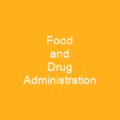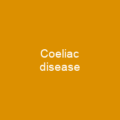Unraveling the Melamine Contamination Crisis: A Pet Lover’s Nightmare
Imagine waking up one day to find your beloved pet unwell, with no clear explanation for their sudden illness. This was a reality faced by countless pet owners in 2007 when a widespread recall of cat and dog foods due to melamine contamination swept across North America, Europe, and South Africa.
The Tragic Beginning
Beginning in March 2007, reports of kidney failure in pets started pouring in. The initial culprit was identified as a single Chinese company producing wheat gluten contaminated with melamine. But the contamination didn’t stop there; rice protein and corn gluten from different sources in China were also affected. Over 5300 pet food products were recalled, with Menu Foods accounting for nearly 100 brands alone.
Impact on Pets
The numbers of affected animals are staggering. By the end of March, veterinary organizations reported more than 100 pet deaths among nearly 500 cases of kidney failure. The U.S. Food and Drug Administration (FDA) received reports of approximately 8500 animal deaths, including at least 1950 cats and 2200 dogs who had died after eating contaminated food.
These numbers are just the tip of the iceberg. Many pet owners were left wondering how many pets were affected but never reported their cases. The impact on pets was not only physical but also emotional, leaving a lasting scar in the hearts of those who lost their beloved companions.
The Mystery Unfolds
Research focused on the combination of melamine and cyanuric acid causing kidney failure. Cyanuric acid was independently used as an adulterant in China, raising concerns for both pet and human health. The contamination also led to hospitalizations and deaths in babies in China.
Contamination Sources
Diamond Pet Foods, a brand known for its quality products like Chicken Soup for the Pet Lover’s Soul Kitten Formula 5.5 oz. cans, Chicken Soup for the Pet Lover’s Soul Puppy Formula 13 oz. cans, Diamond Lamb & Rice Formula for Dogs 13 oz. cans and Nutra Nuggets Lamb Meal and Rice Formula dry dog food, was also affected by this crisis.
Menu Foods sent food samples for chemical analysis but were unable to pinpoint the cause of the sicknesses. Aminopterin was found in some samples, and Michigan State University reported acute tubular necrosis in affected animal kidneys with intratubular crystals. Aminopterin is illegal in China, but Cornell University and FDA couldn’t replicate results from a New York lab.
The Culprit Identified
Later, an unnamed company found industrial chemical melamine in wheat gluten samples. By March 27, Cornell confirmed melamine was present in pet foods, wheat gluten, cells, and urine samples from dead pets. Melamine concentrations were as high as 6.6%. Natural Balance Pet Foods recalled products due to kidney damage despite not containing wheat gluten.
The FDA is still investigating but believes melamine may be the causative agent. Prior studies suggest melamine can cause kidney stones, cancer, or reproductive damage. However, felines’ sensitivity to melamine remains a mystery. Melamine can be detected in blood or urine tests. The FDA is focusing on melamine as a marker for contaminated wheat gluten.
The Aftermath
Researchers have identified contaminants in melamine-tainted pet food, including cyanuric acid, ammelide, and ammeline. The combination of these chemicals appears to be toxic when present together, even though they are not individually toxic. Crystals formed from these compounds have been found in animal kidneys and tissues, suggesting a link between the contamination and kidney failure in affected animals.
The economic impact of the pet food market due to a Menu Foods recall has been extensive, with $42 million in losses. Many owners have considered lawsuits against the company but are facing difficulties valuing the monetary loss of deceased pets. Menu Foods faces 90 class-action lawsuits and has reimbursed some owners who can trace their pets’ illnesses to the company’s products.
The case shares similarities with a 2004 outbreak involving pet foods sickening over 6,000 dogs and cats in Asia. This crisis highlighted the global nature of food supply chains and the importance of stringent quality control measures.

The 2007 pet food recall was a wake-up call for the industry, emphasizing the need for transparency and accountability in global supply chains. As we reflect on this crisis, it serves as a reminder of the importance of vigilance and collaboration to protect our furry friends from harm.
You want to know more about 2007 pet food recalls?
This page is based on the article 2007 pet food recalls published in Wikipedia (retrieved on December 25, 2024) and was automatically summarized using artificial intelligence.







